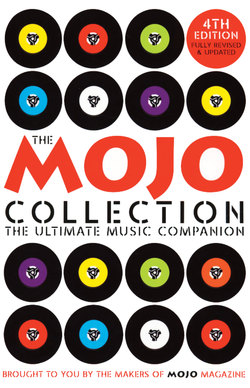Читать книгу The Mojo Collection - Various Mojo Magazine - Страница 111
На сайте Литреса книга снята с продажи.
Captain Beefheart And His Magic Band Safe As Milk Howlin’ Wolf projected into the future. Extraordinary debut from one of rock’s premier league eccentrics.
ОглавлениеRecord label: Buddah
Produced: Bob Krasnow and Richard Perry
Recorded: RCA Studios and Sunset Studios, Hollywood, Los Angeles; April 1967
Released: February 1968 (UK) September 1967 (US)
Chart peaks: None (UK) None (US)
Personnel: Don Van Vliet (v, hm, theremin, bass marimba); Alex St Clair Snouffer (g); Ry Cooder (g, b); Jerry Handley (b); Herb Bermann (b); John ‘Drumbo’ French (d); Milt Holland (pc); Taj Mahal (pc); Russ Titelman (g); Hank Cicalo and Gary Marker (e)
Track listing: Sure ’Nuff ’N Yes I Do; Zig Zag Wanderer; Call On Me; Dropout Boogie; I’m Glad; Electricity; Yellow Brick Road (S); Abba Zabba (S); Plastic Factory (S); Where There’s Woman (S); Grown So Ugly; Autumn’s Child
Running time: 34.25
Current CD: BMG 82876718792 adds: Mirror Man Sessions album and Safe As Milk (Take 5); On Tomorrow; Big Black Baby Shoes; Flower Pot; Dirty Blue Gene; Trust Us (Take 9); Korn Ring Finger
Further listening: Clear Spot (1972)
Further reading: Captain Beefheart (Mike Barnes, 2000); www.beefheart.com
Download: Some tracks on iTunes as part of The Buddah Years
Perhaps impressed by the way in which Captain Beefheart’s early singles Diddy Wah Diddy (a Bo Diddley cover) and Moonchild had paralleled contemporary blues-boom developments in Britain, A&M co-owner Jerry Moss was sufficiently encouraged to commission an album from the Los Angeles-based band. Upon hearing the demos, however, he refused to release the album on the grounds that it was too negative, and that songs like Electricity were not safe for his daughter to listen to. With their A&M contract finished, the first Magic Band broke up, leaving Beefheart free to sign with Buddah Records, where Bob Krasnow set to work polishing the songs that A&M had refused.
Beefheart reworked seven of the songs with bassist Herb Bermann – chosen because, as a professional songwriter already, he might lend a little more credence to the Captain’s compositions in the eyes of the second Magic Band. This new aggregation retained guitarist Alex St Clair Snouffer and bassist Jerry Handley from the previous line-up, alongside two new players who would add distinctive elements to the band’s sound: idiosyncratic drummer John ‘Drumbo’ French, and 16-year-old slide guitar virtuoso Ry Cooder, whose curling lines set the desert-dry tone of the album’s opener Sure ’Nuff ’N Yes I Do, a modernised take on Muddy Waters’ classic Rollin’ And Tumblin’ riff. This and a cover of Robert Pete Williams’ Grown So Ugly provided the clearest connection with the Captain’s blues roots, though already there were signs of Beefheart’s burgeoning sonic ambitions, notably in the presence of the theremin in Electricity and Autumn’s Child and the addition of Milt Holland’s log-drum and marimba to the grungey Dropout Boogie. Horns and backing vocals, meanwhile, brought an authentic Southern soul feel to Call On Me.
Though later albums would head for much weirder territory, the basic elements of the Magic Band sound were already in place on Safe As Milk: the rumbustious, jerky polyrhythms; the spindly, interlocking guitar lines; the abrupt changes in tempo; Beefheart’s raw blues-harp; and most of all, Beefheart’s voice, a fearsome multi-octave instrument capable of swooping mid-line from a high-pitched squawk to a subterranean bass growl. According to engineer Hank Cicalo, it was Beefheart’s vocals that were responsible for destroying a $1,200 Telefunken microphone – a feat he later repeated on The Woody Woodberry TV show. Though the album caused few ripples on its American release, it became one of the most ubiquitous artefacts of UK hippydom thanks to British DJ John Peel’s assiduous championing.
